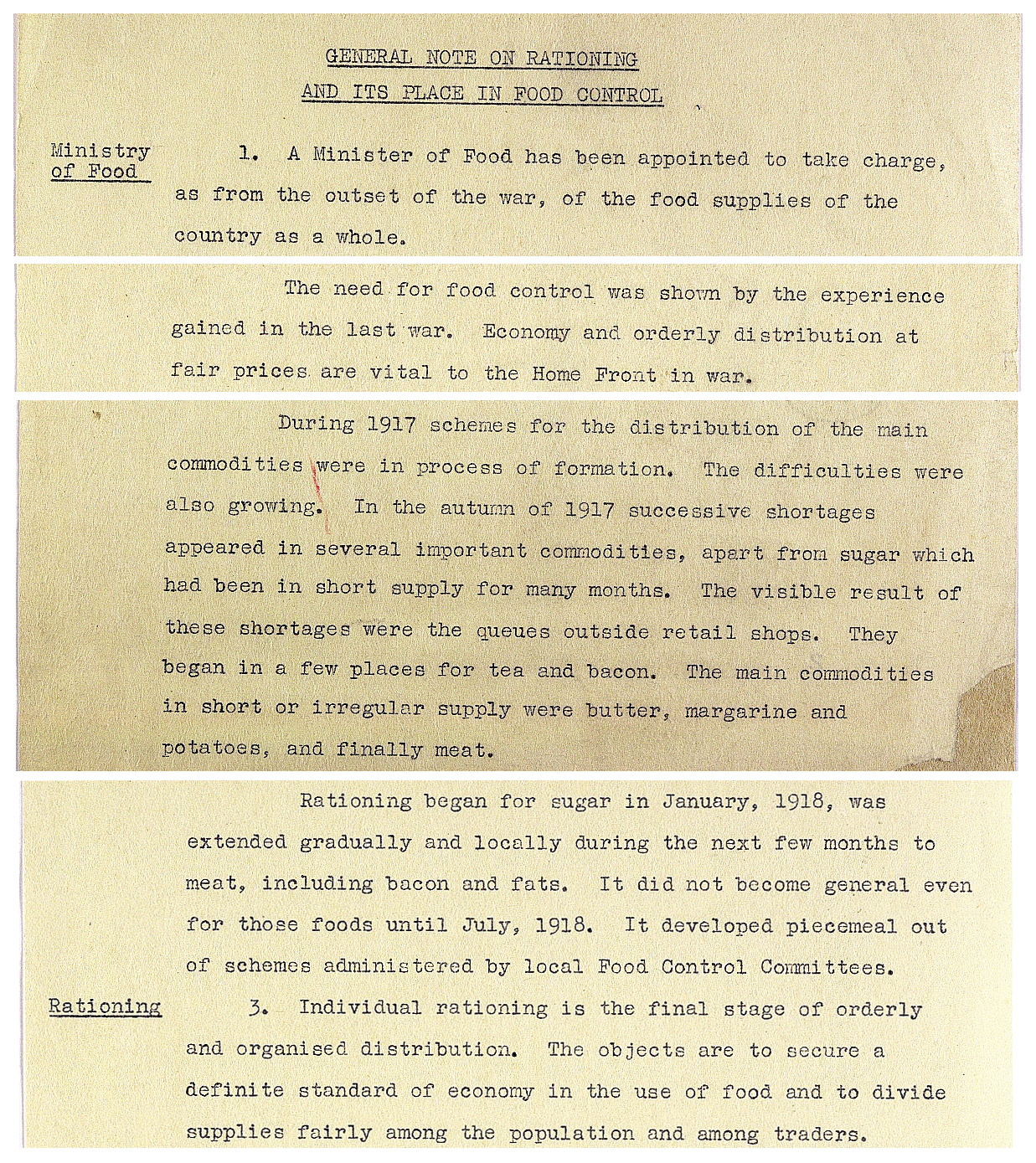
Notes on the need for food control and the reasons for rationing, 1939-1940, Catalogue ref: INF 1/343
After war was declared in September 1939, the British government had to cut down on the amount of food it brought in from abroad as German submarines started bombing British supply ships. There was a worry that this would lead to shortages of food supplies in the shops and very high prices for what was left, making it very difficult for a lot of people to get enough to eat.
- What two reasons made rationing necessary according to the Government?
- Take a look at the ration book, Catalogue ref: BT 131/40. Can you explain how the ration book was used?
- How and why were people encouraged to grow their own food in the poster: Catalogue ref: EXT 1/57 (17)?
Transcript
GENERAL NOTE ON RATIONING
AND ITS PLACE IN FOOD CONTROL
Ministry of Food
1. A Minister of Food has been appointed to take charge, as from the outset of the war, of the food supplies of the country as a whole.
…
The need for food control was shown by the experience gained in the last war. Economy and orderly distribution at fair prices are vital to the Home Front in war.
…
During 1917 schemes for the distribution of the main commodities were in process of formation. The difficulties were also growing. In the autumn of 1917 successive shortages appeared in several important commodities, apart from sugar which had been in short supply for many months. The visible result of these shortages were the queues outside retail shops. They began in a few places for tea and bacon. The main commodities in short or irregular supply were butter, margarine and potatoes, and finally meat.
…
Rationing began for sugar in January, 1918, was extended gradually and locally during the next few months to meat, including bacon and fats. It did not become general even for those foods until July, 1918. It developed piecemeal out of schemes administered by local Food Control Committees.
Rationing
3. Individual rationing is the final stage of orderly and organised distribution. The objects are to secure a definite standard of economy in the use of food and to divide supplies fairly among the population and among traders.
